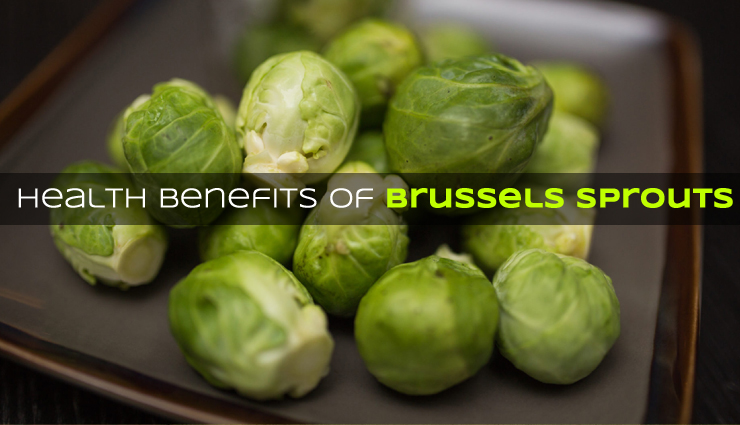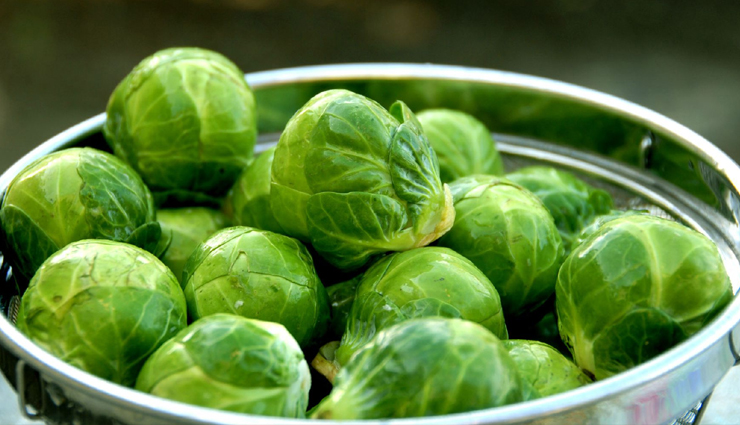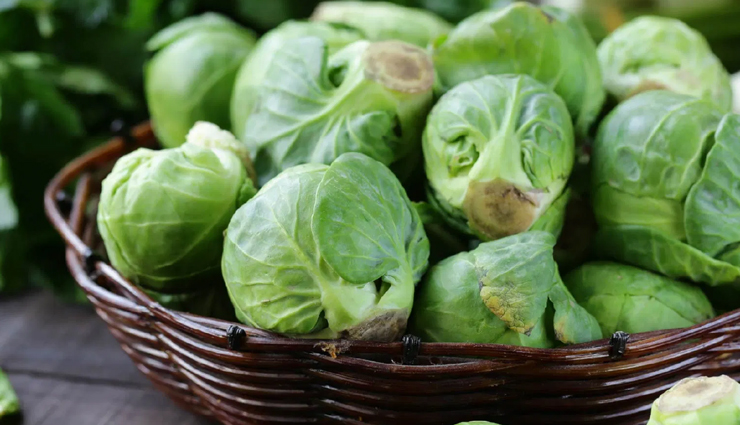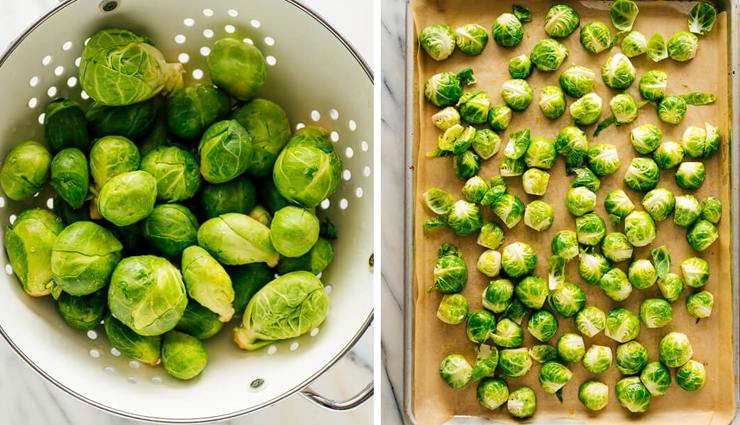- Home›
- Healthy Living›
- 10 Amazing Health Benefits Of Brussels Sprouts
10 Amazing Health Benefits Of Brussels Sprouts
By: Priyanka Maheshwari Sun, 06 Sept 2020 3:59:43

Brussels sprouts are a member of the Brassicaceae family of vegetables and closely related to kale, cauliflower and mustard greens.
These cruciferous vegetables resemble mini cabbages and are typically cut, cleaned and cooked to make a nutritious side dish or main course.
Brussels sprouts boast high levels of many nutrients and have been linked to several health benefits. This article examines 10 ways Brussels sprouts may benefit your health.
High in Nutrients
Brussels sprouts are low in calories but high in fiber, vitamins and minerals.Brussels sprouts are especially rich in vitamin K, which is necessary for blood clotting and bone health.
They’re also high in vitamin C, an antioxidant that helps promote iron absorption and is involved in tissue repair and immune function.
What’s more, their high fiber content helps support regularity and gut health .
In addition to the nutrients above, Brussels sprouts contain small amounts of vitamin B6, potassium, iron, thiamine, magnesium and phosphorus.
Rich in Antioxidants
Brussels sprouts have many health benefits, but their impressive antioxidant content stands out. Antioxidants are compounds that reduce oxidative stress in your cells and help lower your risk of chronic disease.
One study found that when participants ate about 2 cups (300 grams) of Brussels sprouts daily, damage to their cells from oxidative stress decreased by 28%.

May Help Protect Against Cancer
Some studies suggest that the high levels of antioxidants in Brussels sprouts could help protect against certain types of cancer.
There are several possible ways this may work.
A 2008 study found that Brussels sprouts could protect against carcinogens, or cancer-causing agents, and prevent oxidative damage to cells.
High in Fiber
Just a half cup (78 grams) of cooked Brussels sprouts contains 2 grams of fiber, fulfilling up to 8% of your daily fiber needs.
Fiber is an important part of health, and including a good amount of it in your diet affords many health benefits.
Studies show that dietary fiber can relieve constipation by increasing stool frequency and softening stool consistency to ease passage.
Fiber also promotes digestive health by helping feed the beneficial bacteria in your gut.
Rich in Vitamin K
Brussels sprouts are a good source of vitamin K. In fact, just a half cup (78 grams) of cooked Brussels sprouts provides 137% of your daily vitamin K requirement.
This important nutrient plays a vital role in the body.
It is essential for coagulation, the formation of blood clots that stop bleeding.
Vitamin K may also play a role in bone growth and could help protect against osteoporosis, a condition characterized by progressive bone loss.
May Help Maintain Healthy Blood Sugar Levels
In addition to their impressive nutrient profile and long list of health benefits, Brussels sprouts may also help keep blood sugar levels steady.
Multiple studies have linked an increased intake of cruciferous vegetables, including Brussels sprouts, to a decreased risk of diabetes.
This is likely because Brussels sprouts are high in fiber, which helps regulate blood sugar levels.
Fiber moves slowly through the body undigested and slows the absorption of sugar into the blood.

Contain ALA Omega-3 Fatty Acids
For those who don’t eat fish or seafood, eating enough omega-3 fatty acids can be a challenge.
Plant foods only contain alpha-linolenic acid (ALA), a type of omega-3 fatty acid that’s used less effectively in your body than the omega-3 fats from fish and seafood.
This is because your body can only convert ALA to the more active forms of omega-3 fatty acids in limited quantities.
May Reduce Inflammation
Inflammation is a normal immune response, but chronic inflammation can contribute to diseases like cancer, diabetes and heart disease..
Some test-tube studies have shown that the compounds found in cruciferous vegetables like Brussels sprouts possess anti-inflammatory properties (30Trusted Source).
A large study found that a higher intake of cruciferous vegetables was associated with lower levels of inflammatory markers in the blood.
Additionally, Brussels sprouts are high in antioxidants, which can help neutralize the free radicals that can cause inflammation .
High in Vitamin C
Brussels sprouts provide 81% of your daily vitamin C needs in each half-cup (78-gram) cooked serving.
Vitamin C is important for the growth and repair of tissues in the body. It also acts as an antioxidant, is involved in the production of proteins like collagen and may even enhance immunity.
One review including over 11,000 participants found vitamin C reduced the severity of the common cold, decreasing its duration by an average of 8% in adults.
Vitamin C can also increase the absorption of non-heme iron, a form of iron found in plant foods that your body can’t absorb as easily as iron from animal sources.

Easy to Add to Your Diet
Brussels sprouts make a healthy addition to any diet and are easy to incorporate into side dishes and entrées.
People often enjoy them roasted, boiled, sautéed or baked.
For a simple side dish, first cut off the ends of the Brussels sprouts. Mix the sprouts with a bit of olive oil, salt and pepper, and then roast them on a baking sheet until they’re crispy.
Brussels sprouts can also be added to pasta, frittatas or stir-fried dishes for a flavorful and nutritious dinner.





